
Identification of a Woman is a 1982 Italian drama film written, directed, and edited by Michelangelo Antonioni and starring Tomás Milián, Daniela Silverio, and Christine Boisson. The film is about an Italian filmmaker searching for a woman to play the leading role in his next film, and also in his life. Filmed on location in Rome and Venice, Identification of a Woman was awarded the 35th Anniversary Prize at the 1982 Cannes Film Festival. Despite its mixed reviews upon release, Identification of a Woman is considered to be Antonioni's last major work and is noted for its direction, atmosphere and cinematography.

Andreas Horvath is an Austrian photographer and filmmaker.
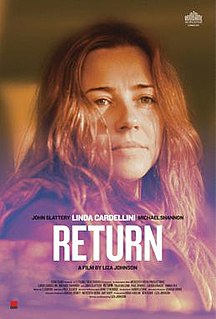
Return is a 2011 independent film about an American reservist, wife and mother returning home from her tour of duty in the Middle East. The film was written and directed by Liza Johnson, and stars Linda Cardellini, Michael Shannon and John Slattery. It is Johnson's first feature-length film, and received good reviews at its premiere at the Cannes Film Festival Directors' Fortnight. Linda Cardellini was nominated for an Independent Spirit Award for Best Female Lead for her performance in the film.

Reality is a 2012 Italian drama film directed by Matteo Garrone and stars Aniello Arena, Loredana Simioli, and Claudia Gerini. The narrative is set in the world of reality television, and follows a Neapolitan fishmonger who participates in Grande Fratello, the Italian version of Big Brother. The film won the Grand Prix award at the 2012 Cannes Film Festival.

Camille Rewinds is a 2012 French drama film directed by Noémie Lvovsky. The film was screened in the Directors' Fortnight section at the 2012 Cannes Film Festival where it won the Prix SACD. Yolande Moreau received a Magritte Award for Best Supporting Actress for her role.
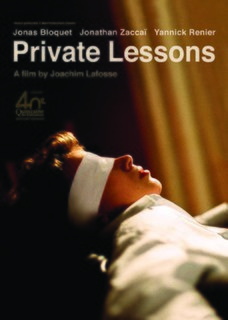
Private Lessons is a 2008 Belgian drama film directed by Joachim Lafosse. It was written by Lafosse and François Pirot. It was screened in the Directors' Fortnight section at the 2008 Cannes Film Festival on 19 May. It was nominated for seven Magritte Awards and was awarded Best Actor for Jonathan Zaccaï and Most Promising Actress for Pauline Étienne.

In the Shadow of Women is a 2015 French-Swiss drama film directed by Philippe Garrel, starring Clotilde Courau, Stanislas Merhar, and Lena Paugam. It was selected to open the Directors' Fortnight section at the 2015 Cannes Film Festival. It is the second installment in Garrel's trilogy of love, the first being Jealousy (2013) and the third being Lover for a Day (2017).
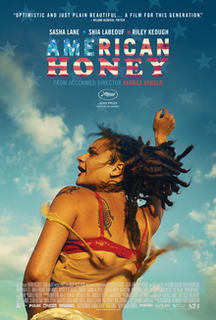
American Honey is a 2016 epic road drama film written and directed by Andrea Arnold. The film stars Sasha Lane, Shia LaBeouf and Riley Keough. The film follows Star (Lane), a teenage girl from a troubled home, who runs away with a traveling sales crew who drive across the American Midwest selling magazine subscriptions door to door. Principal photography began in May 2015 with filming taking place in several states across America. It is Arnold's first film to be set and filmed outside the United Kingdom.

Like Crazy is a 2016 Italian comedy-drama film directed by Paolo Virzì, starring Valeria Bruni Tedeschi and Micaela Ramazzotti. It tells the story of two women from different backgrounds who become friends while being treated at a mental institution. It was screened in the Directors' Fortnight section at the 2016 Cannes Film Festival.
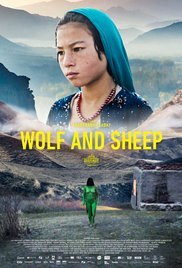
Wolf and Sheep is a 2016 Danish-Afghan drama film directed by Shahrbanoo Sadat. It was screened in the Directors' Fortnight section at the 2016 Cannes Film Festival where it won the Art Cinema Award. It is the first installment in a planned pentalogy based on the unpublished diaries of Anwar Hashimi. Its sequel, The Orphanage, came out in 2019.
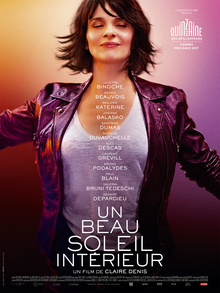
Let the Sunshine In, or Bright Sunshine In, is a 2017 French romantic drama film directed by Claire Denis. The film is an adaptation of Roland Barthes's 1977 text A Lover's Discourse: Fragments. Novelist Christine Angot and frequent Denis collaborator Jean-Pol Fargeau have both been reported as Denis's co-writers on the project. It opened the Directors' Fortnight section of the 2017 Cannes Film Festival. At Cannes, it won the SACD Award.

Jeannette: The Childhood of Joan of Arc is a 2017 French musical film directed by Bruno Dumont. It was screened in the Directors' Fortnight section at the 2017 Cannes Film Festival. It was followed two years later by the non-musical sequel Joan of Arc which premiered at the 2019 Cannes Film Festival, written and directed by Dumont and with Lise Leplat Prudhomme reprising her role. The script is an adaptation of the play The Mystery of the Charity of Joan of Arc, written in 1910 by the Catholic author Charles Péguy.

The Rider is a 2017 American contemporary western film written, produced and directed by Chloé Zhao. The film stars Brady Jandreau, Lilly Jandreau, Tim Jandreau, Lane Scott, and Cat Clifford and was shot in the Badlands of South Dakota. It premiered in the Directors' Fortnight section at the Cannes Film Festival on May 20, 2017, where it won the Art Cinema Award. It was released in theaters in the United States on April 13, 2018. It grossed $4.2 million, making it a small commercial success. The film was critically praised for its story, performances, and its depiction of the people and events that influenced the film.

Wounds is a 2019 psychological horror film written and directed by Babak Anvari, in his English language debut, and starring Armie Hammer, Dakota Johnson, and Zazie Beetz. The film is based on the novella The Visible Filth by Nathan Ballingrud.
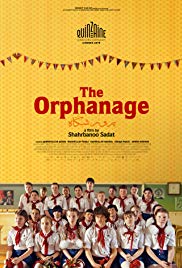
The Orphanage is a 2019 Danish-Afghan drama film directed by Shahrbanoo Sadat. It was screened in the Directors' Fortnight section at the 2019 Cannes Film Festival. It is the second installment in a planned pentalogy based on the unpublished diaries of Anwar Hashimi, who plays a supporting character in the film. Its prequel, Wolf and Sheep, came out in 2016.

Patrycja Płanik is a Polish photographer, visual artist and actress.
Murina is an 2021 internationally co-produced drama film, directed by Antoneta Alamat Kusijanović, in her directorial debut, from a screenplay by Alamat Kusijanović and Frank Graziano. It stars Gracija Filipović, Leon Lučev, Danica Curcic and Cliff Curtis. Martin Scorsese serves as an executive producer under his Sikelia Productions banner.

A Chiara is a 2021 Italian-language drama film directed and written by Jonas Carpignano, the third film in his film trilogy set in a Calabrian town, following Mediterranea (2015) and A Ciambra (2017). The film stars Swamy Rotolo, Claudio Rotolo, Grecia Rotolo, and Carmela Fumo and had its world premiere at the Cannes Film Festival on July 9, 2021, in the Directors' Fortnight section, to very positive reviews. Following its festival screening, the film is set to be distributed by MK2 Films and Lucky Red in Italy and Neon in the United States.
The Sea Ahead is a 2021 Lebanese film directed and written by Ely Dagher. Starring Manal Issa, Roger Azar, Yara Abi Haidar, Rabih Al Zaher, Fadi Abi Samra and Joseph Sassine.
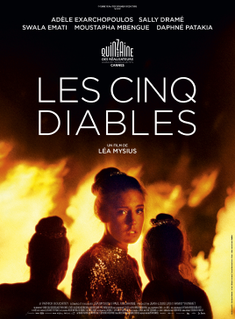
The Five Devils is a 2022 French drama fantasy film directed by Léa Mysius, who wrote the screenplay with Paul Guilhaume. The film stars Adèle Exarchopoulos and Sally Dramé. It screened in the Directors' Fortnight section at the 2022 Cannes Film Festival on May 23, 2022.


















